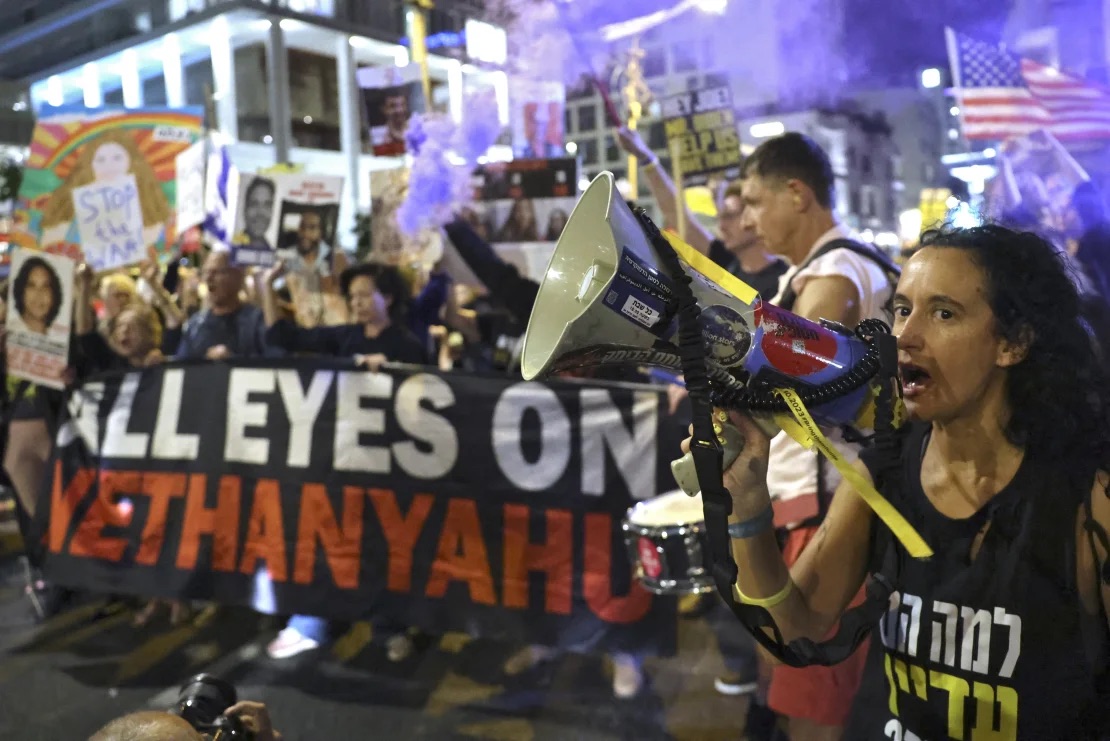JERUSALEM, Israel – Israeli Prime Minister Benjamin Netanyahu has removed Yoav Gallant as defense minister following a series of public and private disputes over Israel’s war strategy, negotiations with Hamas, and internal political policies.
The dismissal marks a notable escalation within Netanyahu’s cabinet as Israel faces increasing security and political challenges.
In a statement on Tuesday, November 5, 2024, evening, Netanyahu cited “cracked” trust between himself and Gallant as the reason for the dismissal.
Foreign Minister Israel Katz will assume Gallant’s role as defense minister, while Gideon Sa’ar, a key figure in Netanyahu’s coalition, will replace Katz as foreign minister.
Neither Katz nor Sa’ar bring extensive military experience to the position, though both have held significant roles in the current administration.
The reshuffle also comes during a tense time in Israel’s relations with the U.S., its closest ally. Gallant, who communicated daily with U.S. Defense Secretary Lloyd Austin, was seen as a crucial link between Israel and the Biden administration.

Widespread Reaction and Protests
News of Gallant’s removal drew immediate criticism, sparking protests across Israel.
Opposition leaders and civilians gathered outside Netanyahu’s Jerusalem residence, shouting “shame!” while in Tel Aviv, families of hostages in Gaza called Netanyahu a “traitor.”
Gallant’s previous dismissal attempt last year over his opposition to judicial reform had also led to widespread demonstrations.
Israel’s political landscape remains volatile, with Netanyahu’s coalition already strained by divisions over domestic and military issues.
Gallant’s stance on Gaza strategy and his support for compulsory military service for ultra-Orthodox men set him at odds with other coalition members, especially as Netanyahu’s government relies on ultra-Orthodox support.

Growing Tensions Over War Strategy
Gallant and Netanyahu frequently clashed over Israel’s approach to the ongoing conflict with Hamas in Gaza.
In August, Gallant criticised Netanyahu’s goal of “absolute victory” as unrealistic, prompting Netanyahu to release a statement accusing Gallant of endorsing an “anti-Israel narrative.”
Gallant opposed Netanyahu’s emphasis on securing the Gaza-Egypt border, known as the Philadelphi Corridor, arguing it detracted from negotiating a ceasefire and securing the release of Israeli hostages.
“If we want the hostages alive, we don’t have time,” Gallant reportedly told the cabinet.

Domestic Disputes and Judicial Reform
Gallant’s opposition extended beyond military strategy to include Netanyahu’s judicial overhaul and proposed policies for ultra-Orthodox exemptions from military service.
As defense minister, Gallant argued against Netanyahu’s draft legislation that would allow ultra-Orthodox families to receive subsidies without the fathers serving in the Israel Defense Forces.
Gallant, a proponent of equal service requirements, maintained that this policy weakened Israel’s security.

New Appointments and Implications for the Coalition
The appointment of Katz and Sa’ar, both close to ultra-Orthodox leaders, reflects Netanyahu’s strategy to stabilize his coalition amid wartime pressures.
Sa’ar’s experience working with ultra-Orthodox parties is expected to strengthen coalition unity, with Netanyahu stating that the reshuffle “will enhance stability in these challenging times.”
However, Gallant’s dismissal raises concerns about continuity within Israel’s defense operations, as Katz and Sa’ar lack military backgrounds.

Calls for Accountability and Ongoing Investigations
Gallant’s call for an official inquiry into the Hamas attack on October 7 has added to the controversy.
The same week, Israeli police announced a criminal investigation “concerning events at the outset of the war,” though details remain undisclosed.
In a separate probe, Netanyahu’s aide was recently arrested for allegedly leaking classified information, increasing scrutiny on the administration.
Netanyahu’s decision to fire Gallant has only intensified opposition members’ and civil rights advocates’ calls for transparency and accountability.
Critics argue that the reshuffle prioritises Netanyahu’s political survival over Israel’s security and stability, especially as tensions escalate both domestically and with neighbouring Iran.
The impact of Gallant’s departure on Israel’s wartime strategy and U.S.-Israel relations remains uncertain.
However, the swift political fallout and protests underscore the precarious balance Netanyahu must maintain within his coalition and among Israeli citizens.







